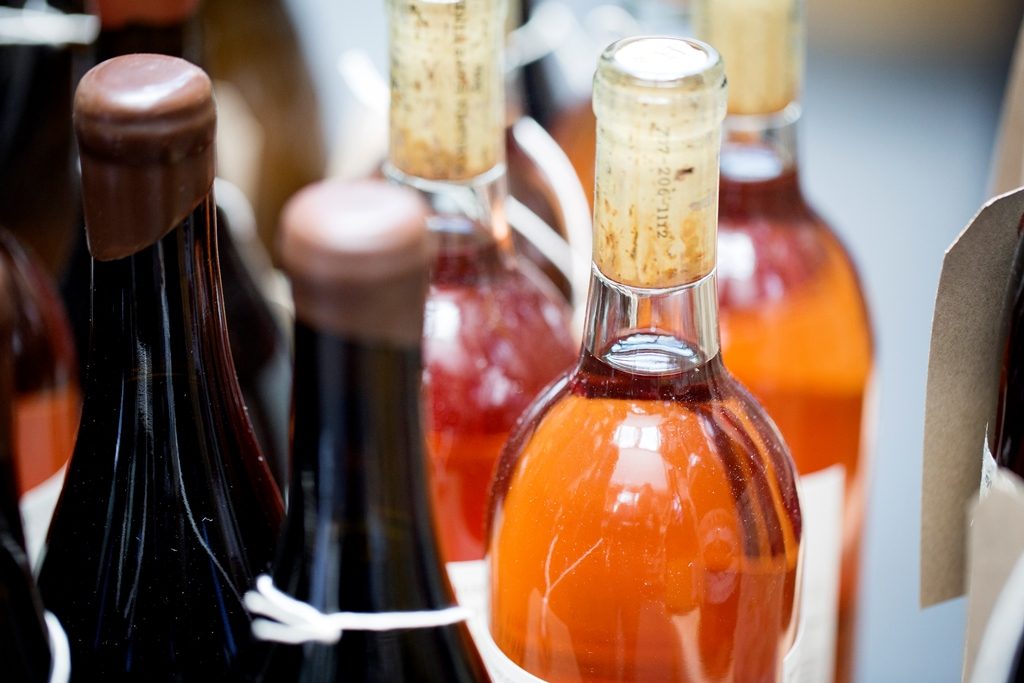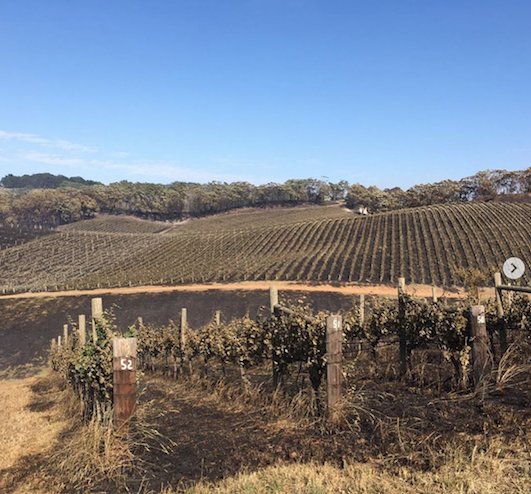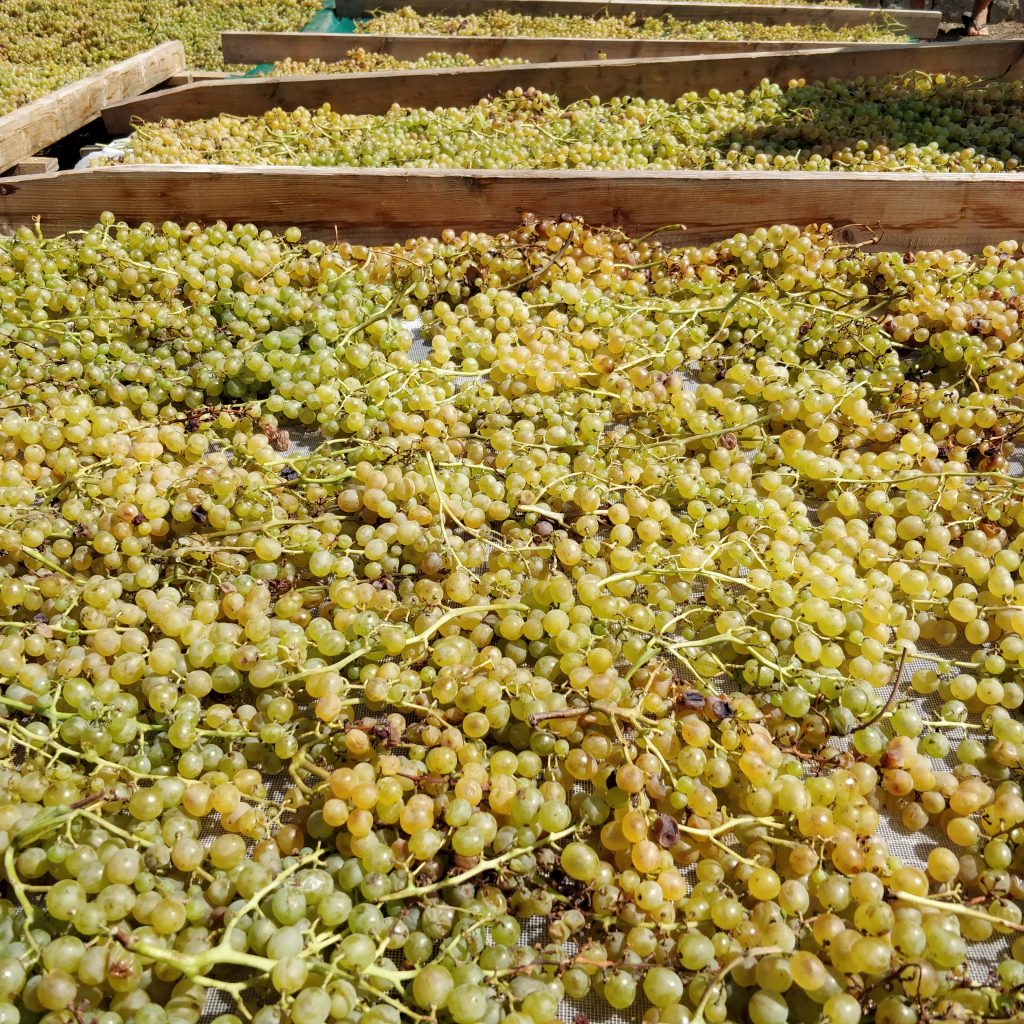
What do we do in the dog days of January? First of all, we should bemoan the fact that anyone might be participating in (or considering) dry January. Balance in all things, by all means, and it is always good to give one’s overwrought palate a rest, but symbolic gestures need to be translated into more rooted behaviours. I say drink less and drink better. Your brain and your digestion will thank you. Call it 20:20 foresight.
We should bemoan the fact that anyone might be participating in (or considering) dry January. I say drink less and drink better.
Tis also the time when the oenomancer-manqué decants the crusted crystals and predicts the following twelvemonth. Predictions and prophecies are for gamblers and witches. Experience tells us that the world is changing around more quickly than we can keep up.

A rapidly changing environmental and political climate
In the wine world, climate catastrophe can destroy a livelihood in a blink. Statistically, extreme weather events are no longer unusual; it is their severity that really hammers home. Unless the human race gets its house in order today, the world of wine will be hit in ways that we can’t even imagine.
In the political world, Brexit may affect trade a little or a lot, depending on whether tariff-free trade deals are negotiated and over what timeframe this takes place. It is useless to speculate and a waste of energy to worry too much.
Cultivating culture in order to drink better wine
There will be usual clamours about innovation in the wine trade, the customary brouhaha about trends, and why we should list this or drink that. How about a headline faux-story? Shall we name a country or a region that’ll get us gossiping excitedly around the wine cooler? Are we so uncontrollably thirsty for novelty? Chinese Grenache? Canadian Gamay? Twere not that it was done at all, but that twere done well. Novelty, as the cliché goes, is as old as the world itself. We prefer to celebrate wines that don’t conform to a style or can be put easily into a box, but possess their own unique strength and depth, as if they had always existed. The more things change, the more they stay the same. Perhaps, our greatest challenge, and the one we would like to embrace most, is to get people to drink better wine. This involves teaching an appreciation of how and why those wines are better.

We will continue cultivate an approach to selling that focuses strongly on cultural education, story-telling and (re)defining the very nature of taste. The main ideas behind this are:
- It is not about the grape variety; it is about the wine.
- A clear, sensitive and sustainable approach to farming is the key not only to ethical wine, but to great wine.
- We are returning to the idea that natural winemaking is more and more about respecting terroir.
- Cool-climate character in wines increases their drinkability. This may have nothing to do with the vines actually being grown in cool climates, but that combination of responsive farming and crunchy ripeness levels, which yields grapes that produce delicious and agreeable wines.
- We love skin contact wines, for example. Now I want them to have length as well as breadth, to possess energy and an integral acidity, to reflect the tension between the juice and the skin of the grape.
Talking about the telling of stories. Whereas the wine press like to track trends and invent simplistic reasons for wines, growers and regions to become popular, wine is really all about people and places and 1,000 decisions taken every year to bring a particular wine to bottle. If we don’t’ teach them what is in their glass, then consumers will continue to go with what they know, or what think they recognise.
Let’s appreciate uncertainty, indescribability, singularity, even mystery.
More than focusing on wine as an objective thing, it is more important for us to rediscover taste, to put aside the certainties instilled in us by wine courses. Let’s appreciate uncertainty, indescribability, singularity, even mystery. Today, I drank a wine that I had opened four days ago; it had incredible energy and also a sense of its own integrity. I let the liquid envelop my tongue, then overtake my senses – I did not reference anything else, challenge it, grade it, even think about the grape variety, speculate on its flaws, or wonder how it might develop. I was totally in the moment.
Our fervent hope is that every one of you will experience wines that will give you real pleasure in 2020 and that pleasure will drive you to dig deeper into the origins of the wine (and wine, in general) to understand how it came to be and why you liked it so much.
*
Interested in finding more about our truly pleasurable drops? Contact us directly:
shop@lescaves.co.uk | sales@lescaves.co.uk | 01483 538820

